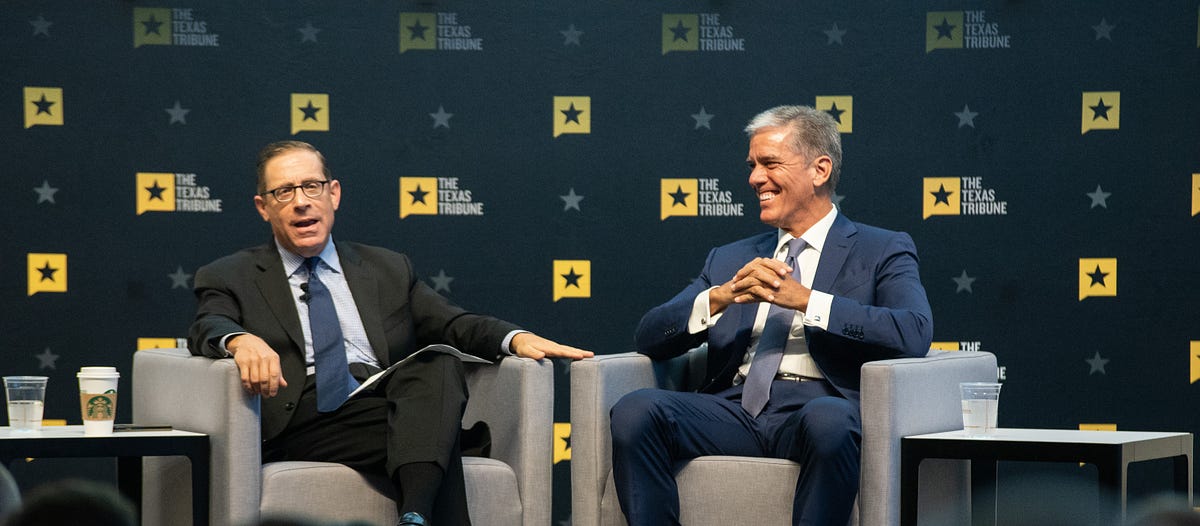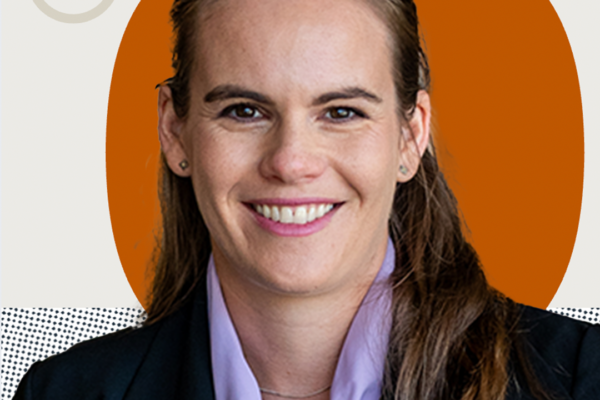Houston Chief Recovery Officer Marvin Odum Faces Long Haul in Hurricane Relief Efforts
The former Shell Oil CEO discusses how a business background helped him navigate complex government systems.
By London Gibson

Appointed less than one month after Hurricane Harvey struck, Houston’s Chief Recovery Officer Marvin Odum was tasked with rebuilding a major U.S. city after suffering one of the most destructive storms in history — all while learning to navigate the “broken” system that is federal aid relief. Fortunately, he had years of experience as president of Shell Oil Co. to draw from.
“I think there’s enormous value in impatience,” Odum says. “Because you’ve got to have enough energy to improve something … I don’t want to be critical of something that’s there and that’s intended to help, but this is a broken process.”
Odum was asked to take the position by Houston Mayor Sylvester Turner in September 2017. Since his appointment, he has refused to receive any salary for the countless hours spent attempting to mend the city that lost billions of dollars in property damage to the hurricane.
One of the biggest challenges, Odum says, is the sheer amount of time it takes to receive funding for recovery efforts and then transfer that funding to where it’s needed. As of early October, Houston had received only $200 million in relief funding from the Federal Emergency Management Agency, a small portion of the $2.5 billion that was expected.
“From someone coming out of business, it’s almost terminally frustrating, how long this takes,” Odum says. He adds, “It’s a systems problem; it’s not a people problem.”
When there are so many people struggling, even when the money is obtained it is hard to decide where to put it first, Odum says.
He remembers the shock of first hearing about Harvey’s havoc last year. “It’s my hometown,” Odum says. “It’s just incredibly devastating. And you’re sitting there wondering, ‘How does this ever get put back together again?”
While waiting for federal aid relief, Odum says he and his recovery team worked outside of the normal channels of the bureaucratic process to find help from external sources. Among these, he cites businesses in Houston that donated materials. These philanthropic efforts spurred by the recovery team were eventually accepted by FEMA as part of the 10 percent match requested to offset its financial relief.
“What this team was able to do was say, ‘What are the other solutions we have for this problem?’” Odum says.
Odum is no stranger to navigating complex systems,. As president of Shell, one of the largest energy companies in the world, he had experience with similarly difficult processes.
“It’s a big, bureaucratic global entity that would rival any government,” Odum says. “The issues are equally complicated.”
However, Odum says, corporations typically have greater access to resources and a quicker capacity to get tasks done. He says government operates differently because it tends to be naturally more risk-averse.
“The incentives in business are there,” Odum says. “All the way down to the individual level, there are incentives for individuals to take risk along that way of thinking. I don’t see that in most elements in government.”
Another wave of federal funding is expected in December, Odum says.
When his recovery team asked the federal government for the relief funding, both the city of Houston and Texas state legislators requested that the money come directly to the city of Houston, rather than be funneled through
the state capital first. However, the federal government refused, instead sending it through Austin before it could make its way to the city.
Odum said had the government not gone through this system, the money that will be arriving in a few months could have already arrived in the summer.
In the face of disasters such as Hurricane Harvey, Odum says the country needs business leaders to get involved and work with governments to streamline the existing systems.
“The world is facing some enormous, challenging issues … You have to have business at the table helping to solve those problems,” Odum says. “Government can’t solve those problems on their own.”
About this Post
Share:


